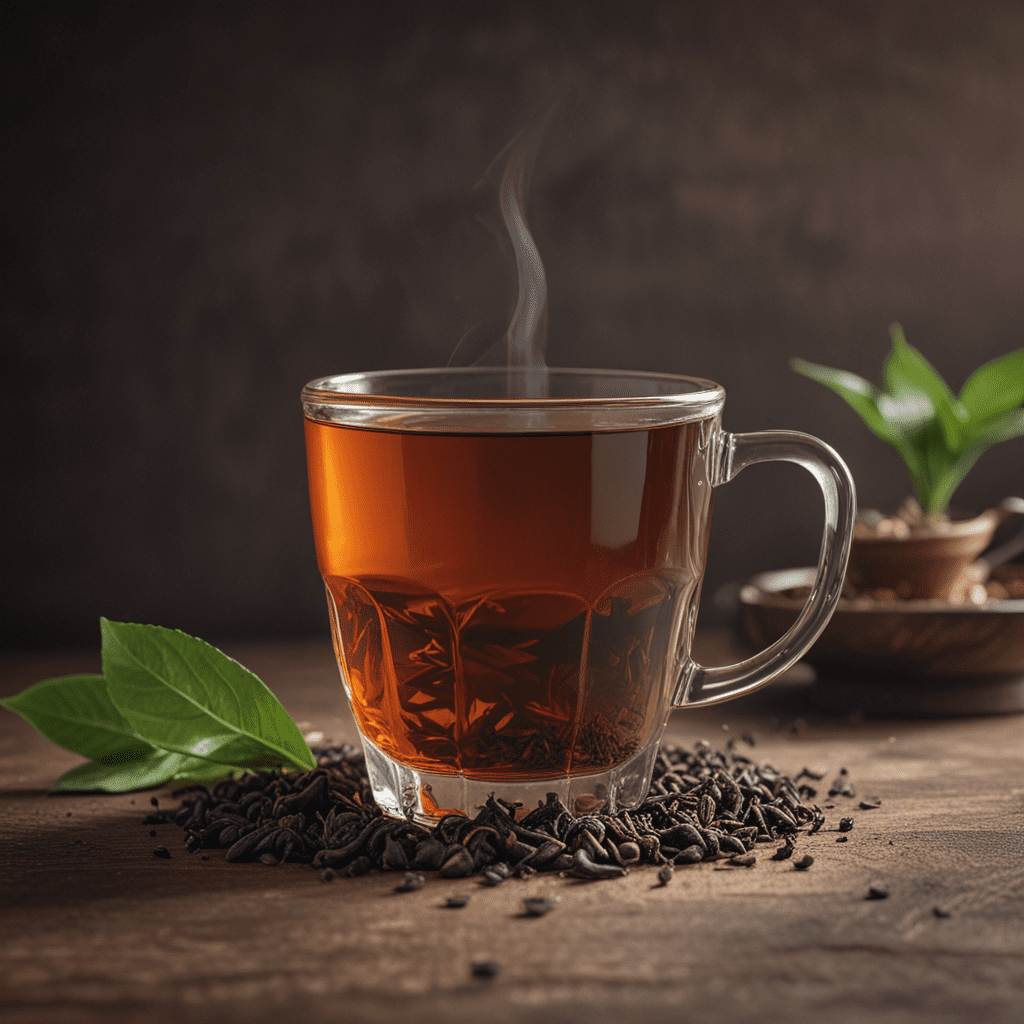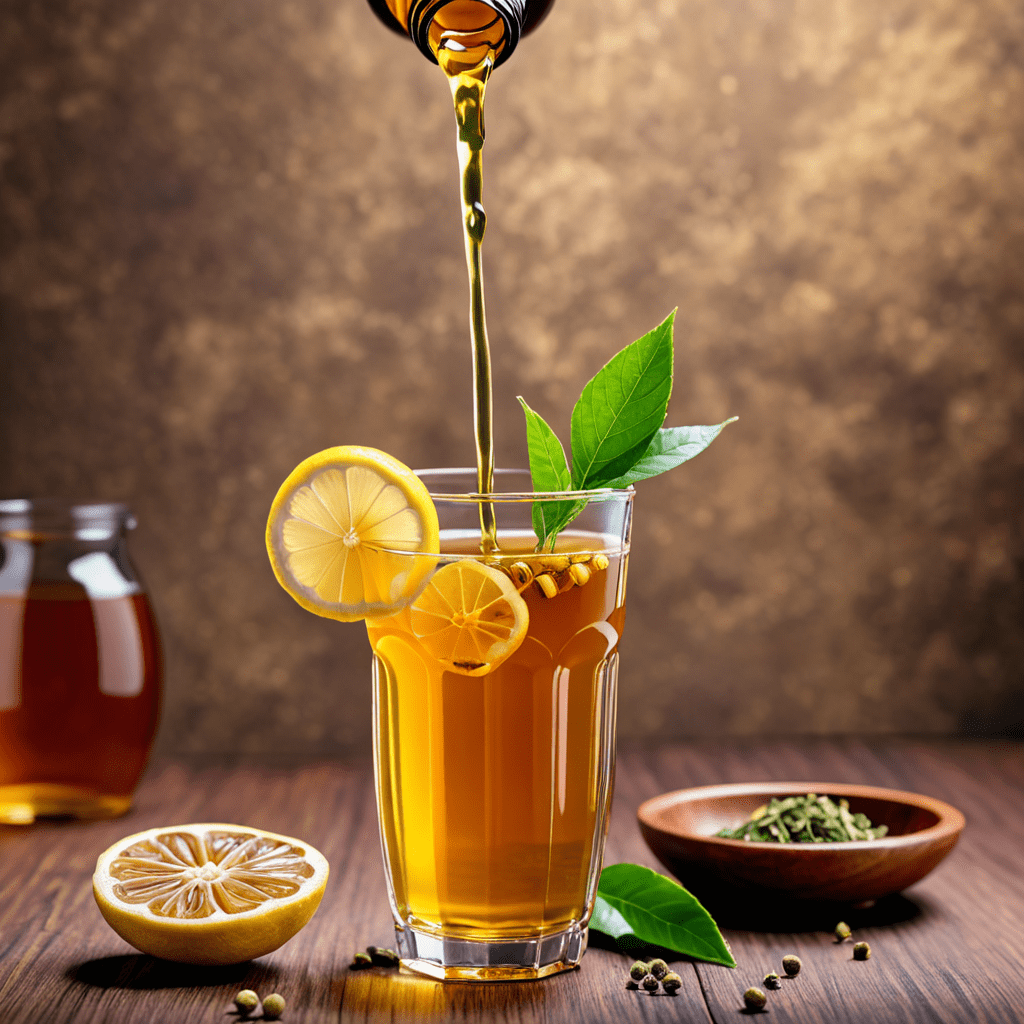Introduction: Assam Tea – A Timeless Legacy
Assam tea, renowned worldwide for its robust flavor and rich history, has been an integral part of India's tea heritage for over two centuries. Cultivated in the lush Brahmaputra Valley of Assam, this exceptional beverage embodies a unique terroir and brewing tradition that captivates tea enthusiasts globally.
Historical Significance of Assam Tea
Assam tea traces its origins to the early 19th century when British explorers discovered wild tea plants growing abundantly in Assam's forests. Recognizing its commercial potential, the British established tea plantations in the region, transforming Assam into one of the world's leading tea-producing areas. Today, Assam remains synonymous with premium quality tea, with its distinctive flavor profile gaining widespread acclaim.
Assam’s Unique Tea-Growing Terroir
The Assam Valley's exceptional climate and soil conditions contribute to the distinctive characteristics of Assam tea. The region experiences abundant rainfall, high humidity, and warm temperatures throughout the year, providing an ideal environment for tea plants to flourish. The rich alluvial soil, derived from the Brahmaputra River, is fertile and well-drained, further enhancing tea plant health and productivity.
Characteristics of Assam Tea: Bold and Malty
Assam tea is categorized as a black tea, undergoing full oxidation during processing, resulting in its characteristic dark brown leaves. When brewed, Assam tea yields a deep amber liquor with a robust, malty flavor. Its bold taste and high caffeine content make it a popular choice for invigorating morning brews and afternoon pick-me-ups. Assam tea's strong tannins also impart a slight astringency, adding depth and complexity to its taste profile.
Health Benefits of Assam Tea
Beyond its delightful flavor, Assam tea is also recognized for its potential health benefits. The high concentration of antioxidants, including theaflavins and thearubigins, contribute to its antioxidant activity, protecting cells from damage. Assam tea may also have anti-inflammatory properties and support cardiovascular health. Additionally, its caffeine content can provide a boost to alertness and energy levels, making it a refreshing beverage for both body and mind.
Perfecting the Brewing Process for Assam Tea
To fully appreciate the nuances of Assam tea, careful attention should be paid to the brewing process. The ideal brewing temperature for Assam tea is between 90-95 degrees Celsius (194-203 degrees Fahrenheit). Using freshly drawn, cold water is essential to extract the optimal flavor and avoid bitterness. For an optimal brewing experience, use approximately 2 grams of loose-leaf Assam tea per 8 ounces of water. Steep the tea leaves for 3-5 minutes, depending on desired strength. Longer steeping times will result in a more robust flavor, while shorter steeping times will yield a lighter, more refreshing brew.
Food Pairings: Complementing the Richness of Assam Tea
Assam tea's bold flavor pairs well with a variety of sweet and savory dishes. Its malty notes complement rich desserts such as chocolate cake, fruit tarts, and scones. Assam tea also pairs harmoniously with spicy dishes, including curries, grilled meats, and hearty soups. The tea's strong tannins help cut through the fattiness of these dishes, enhancing the overall dining experience.
Assam Tea: A Source of Livelihood and Tradition
Assam tea cultivation has played a significant role in the region's economy and culture. The tea industry provides employment for millions of people in Assam, directly and indirectly. Tea gardens, with their distinctive rolling landscapes, have become an integral part of Assam's heritage and identity. The traditional methods of tea cultivation, passed down through generations, continue to be practiced in many parts of Assam, preserving the unique character of its teas.
Promoting Assam Tea: Global Recognition and Sustainability
Assam tea has gained global recognition for its exceptional quality, with exports reaching various countries worldwide. To ensure the continued success of Assam tea, initiatives have been undertaken to promote its sustainability and environmental consciousness. These efforts include implementing organic farming practices, reducing chemical usage, and protecting biodiversity within tea gardens. By embracing sustainable practices, Assam tea producers aim to preserve the region's unique ecosystem while maintaining the high quality of their teas for future generations.
Conclusion: Assam Tea – A Delightful Afternoon Companion
Assam tea stands as a testament to India's rich tea heritage, offering a robust and flavorful brew that has captivated tea enthusiasts for centuries. From its historical significance to its unique terroir and brewing traditions, Assam tea embodies a remarkable story of nature, culture, and human endeavor. Whether enjoyed as an invigorating morning brew or a relaxing afternoon pick-me-up, Assam tea provides a delightful and unforgettable experience that celebrates the exceptional craftsmanship and artistry behind this timeless beverage.
FAQs
What is the difference between Assam tea and other black teas?
Assam tea is known for its bold, malty flavor and high caffeine content compared to other black teas. It is cultivated in the Assam Valley of India and has a unique terroir that contributes to its distinct taste profile.
How do I brew the perfect cup of Assam tea?
To brew the perfect cup of Assam tea, use freshly drawn, cold water and a water temperature between 90-95 degrees Celsius (194-203 degrees Fahrenheit). Add 2 grams of loose-leaf Assam tea per 8 ounces of water and steep for 3-5 minutes, depending on desired strength.
What are the health benefits of Assam tea?
Assam tea is rich in antioxidants, including theaflavins and thearubigins, which contribute to its antioxidant activity. It may also have anti-inflammatory properties and support cardiovascular health.



